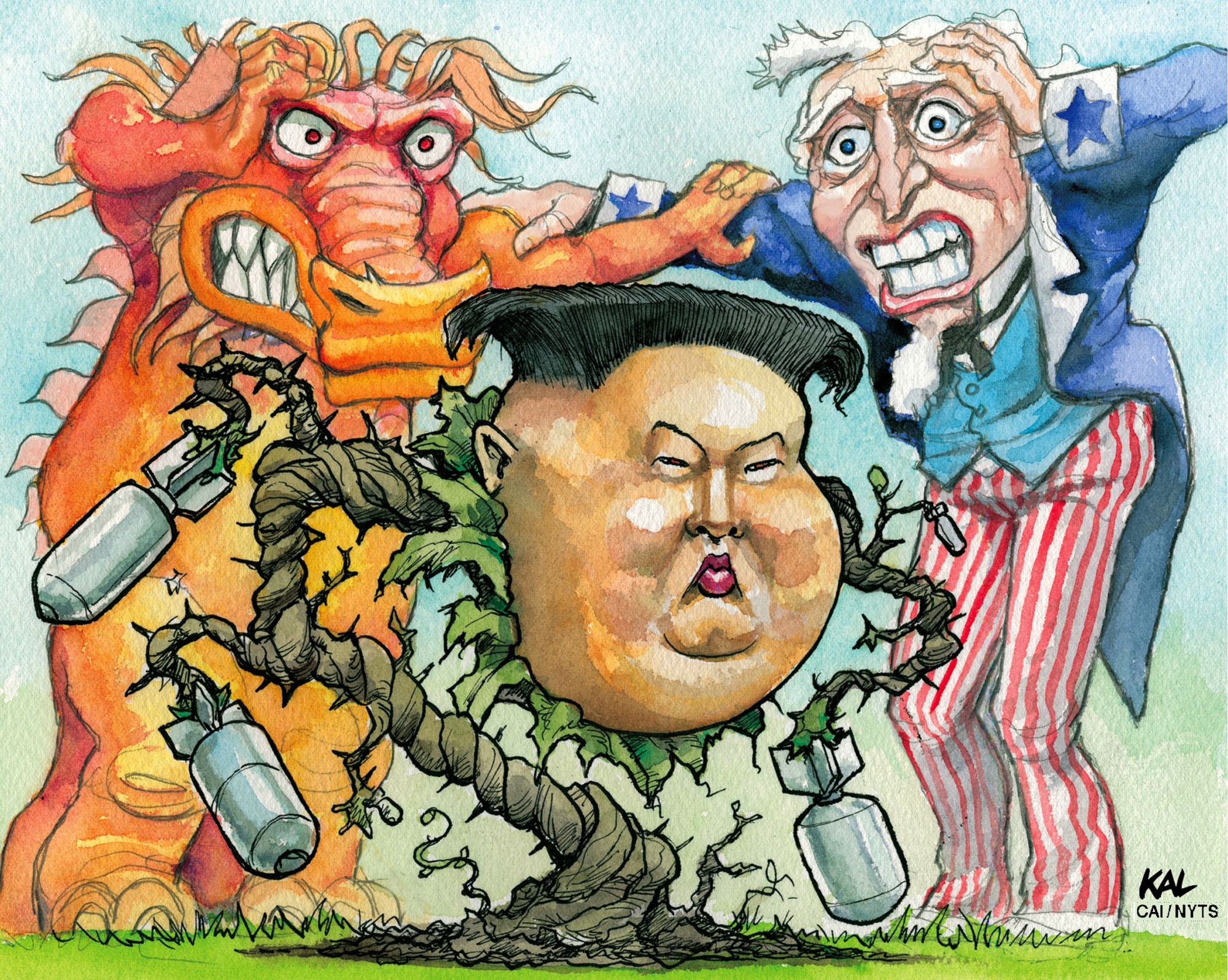North Korea's quest for nuclear weapons is often depicted as a "rational" response to its strategic imperatives of national security and regime survival. After all, the country is surrounded by larger, supposedly hostile states, and it has no allies on which it can rely to come to its defense. It is only logical, on this view, that Kim Jong Un wants to avoid the mistake made by Iraq's Saddam Hussein and Libya's Moammar Gadhafi, both of whom would still be alive and in power had they acquired deliverable nuclear weapons.
In fact, North Korea's appetite for nuclear weapons is rooted more in aggression than pragmatism. North Korea seeks nothing less than to decouple the United States from its South Korean partner — a split that would enable the reunification of the Korean Peninsula on Kim's terms. In other words, North Korea does not want only to defend itself; it wants to set the stage for an invasion of its own.
Of course, such a scenario is, in many ways, the stuff of fancy. But to be a North Korean today is not necessarily to accept the world as it is. And North Korean propaganda continues to reiterate the view that the Korean Peninsula consists of one people, sharing one language and one culture, indivisible — except by outsiders like the U.S. By this logic, the North needs to find a way to discourage those outsiders from intervening in the peninsula's affairs.



















With your current subscription plan you can comment on stories. However, before writing your first comment, please create a display name in the Profile section of your subscriber account page.